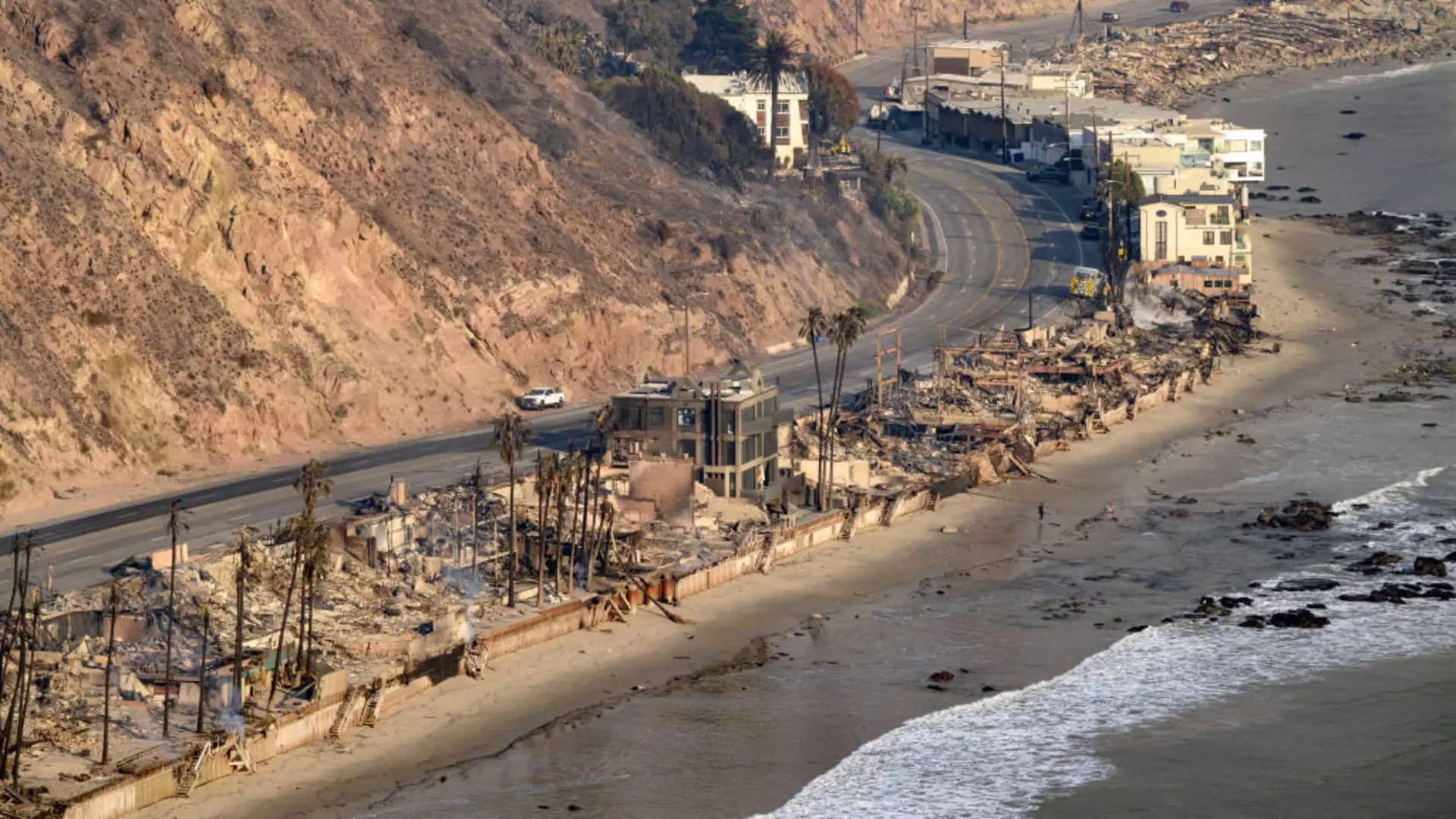The ongoing wildfires in Los Angeles have stirred not only environmental and societal concerns but have also significantly impacted the airline industry. Major airlines, including American Airlines, United Airlines, Southwest Airlines, and JetBlue Airways, have introduced travel waivers for passengers scheduled to fly to and from the area. This response reflects the urgency of the situation; as wildfires ravage the region, the combination of power outages, water shortages, and damage to thousands of homes has created a complicated scenario for both travelers and service providers.
Recent reports indicate that the wildfires have led to the destruction of over 10,000 homes and other structures across Los Angeles County. In addition to property damage, residents are grappling with power outages and restrictions on water usage, where boiling tap water has become a necessity in severely affected areas like Pacific Palisades. Although the operational status of the airports has remained largely stable—reportedly functioning as normal—this does not negate the widespread impact felt throughout the city.
With the risk of wildfires and accompanying evacuations, public safety has taken precedence. Many residents have been strictly advised to prioritize safety, which may include abandoning their homes during evacuation orders. Thus, the situation has created a daunting reality not only for those directly affected but also for anyone planning to travel to the region.
In light of the ongoing chaos, airlines have stepped up to modify their cancellation policies and provide more flexibility to travelers. American Airlines has extended an olive branch to customers by allowing them to rebook flights without incurring change fees or fare differences, effective until January 20. This gesture aims to alleviate pressures on travelers who may wish to avoid the region until the situation stabilizes.
Similarly, Southwest Airlines has acknowledged the volatility of service to major Los Angeles airports and has permitted customers to rebook within a two-week timeframe without additional costs. Such accommodations signal an understanding of the precarious conditions faced by travelers, which include getting access to clean water and ensuring personal safety.
The business ramifications of the wildfires have not gone unnoticed in financial circles. Delta Air Lines, one of the largest carriers operating in Los Angeles, reported a decline in flight sales to the city, although the drop does not appear to be severe enough to trigger widespread cancellations. This cautionary approach from travelers could lead to notable shifts in demand, potentially altering revenue forecasts.
Interestingly, Delta’s leadership has acknowledged a historical trend: following natural disasters, there is often a surge in travel demand driven by reconstruction and rebuilding efforts. Glen Hauenstein, the airline’s president, remarked that despite current declines, there might be an uptick in travel demand once the immediate crisis subsides. This phenomenon is not unusual; historically, people tend to return to areas marred by natural disasters to participate in recovery efforts.
As the situation unfolds, it becomes evident that nature and human livelihoods are intricately connected, particularly concerning travel and commerce. The wildfires in Los Angeles have brought about significant challenges for airlines and travelers alike, fostering a complex environment that tests the resilience of both industries.
Despite these challenges, the proactive measures taken by airlines to accommodate passengers underline a commitment to consumer welfare during emergencies. As Los Angeles grapples with recovery from these devastating wildfires, the ripples of this crisis extend far beyond immediate safety concerns, potentially reshaping the future dynamics of air travel in one of the country’s busiest metropolitan hubs.

